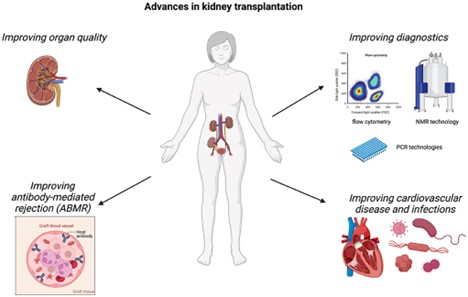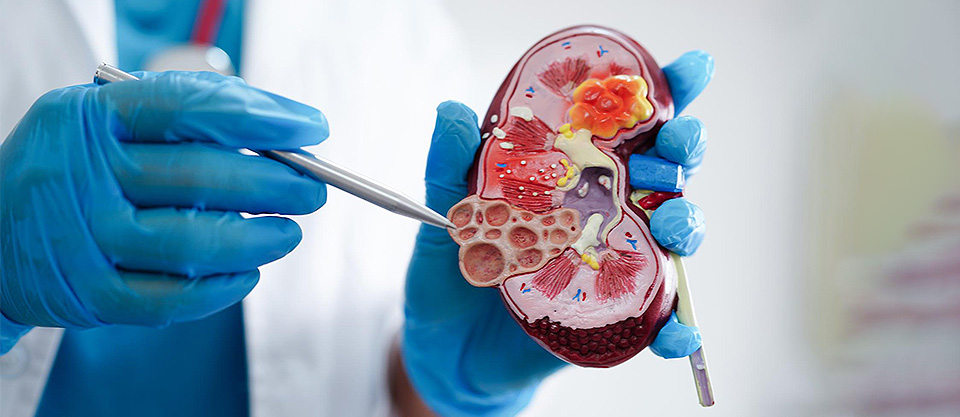Kidney transplant is a big deal and can save or greatly improve someone’s life. But as with any medical procedure kidney donation has it’s own risks and long term consequences. While it’s safe the potential donor and their loved ones need to understand the potential effects on health, lifestyle and well being that may come up in the long run.
This article will give you an evidence based overview of the long term medical, physical and psychosocial considerations of kidney donation and kidney transplant medication so you can make an informed decision if you’re thinking of donating.

Living Kidney Donors
In this article of Medipars we are talking about different kinds of kidney transplants such as living kidney donors are people who choose to give one of their kidneys to someone in need of a kidney transplant in Iran. Unlike the average person living donors go through a thorough evaluation process at a transplant center to ensure they are healthy enough to donate a kidney. According to the National Kidney Foundation and o living donor nephrectomy is a major surgery and post surgery donors have normal kidney function with regular function tests. The recipient’s insurance covers medical costs but kidney donors live longer they should be aware of increased lifetime risk of organ trdeveloping end stage kidney disease. Ongoing health monitoring ensures good health outcomes including emotional support.
Future Health Kidney Function
After kidney transplant your body adjusts but you lose about 25-35% of your total kidney function after living donation. This reduced function doesn’t affect daily life but may increase health risks over time.
Donors are more likely to develop kidney failure than people of similar health who don’t donate. For many serious kidney conditions don’t occur until much later in life, kidney failure often occurs after 60.Kidney function tests are crucial in monitoring the health of kidney donors post-surgery. These tests help detect early signs of kidney disease and potential kidney failure, ensuring timely intervention. Regular testing is vital for maintaining optimal kidney function, as it allows healthcare providers to address any abnormalities that may arise in the remaining kidney, safeguarding long-term health.
Long term medical management may be needed if:
- Kidney failure occurs in the future.
- The remaining kidney gets damaged due to an injury, illness or chronic condition like diabetes or high blood pressure.
Damage to or deterioration of your remaining kidney increases the risk of chronic kidney disease (CKD). Donors need to have regular health monitoring for early signs of CKD or other complications.
Reduced Kidney Reserve Capacity
We all have more than enough kidney function to meet our body’s needs so we can donate one whole kidney without any major impact on our health. But we need to understand that kidney donation means we lose some of this reserve capacity. Once you donate a kidney you have less function from the single kidney you have left and may have decreased ability to fight off certain infections, illnesses and other short and long term risks.
Physical Changes
Donating a kidney can result in physical changes that some donors may find difficult long term. For example:
- The surgery itself leaves visible scars on your abdomen where the doctor made incisions
Life after donation limits your kidney’s reserve capacity—the ability of each kidney to handle extra strain. So if your remaining kidney gets injured or damaged your body has less ability to compensate.
New Health Issues Post Donation
Kidney donation doesn’t affect overall life expectancy but donating a kidney may contribute to specific health issues over time. These include:
- Slightly higher risk of High Blood Pressure – The remaining kidney works harder to compensate for the loss of the other kidney and high blood pressure may persist.
- Potential Weight Gain – Research shows donors have a higher risk of gaining more weight than expected after surgery. This weight gain can be attributed to:
- Lifestyle changes
- Hormonal changes
- Metabolic changes
If you find yourself gaining weight after donating a kidney talk to your healthcare team about how to maintain a healthy weight.

Psychosocial Considerations
Donating a kidney has big psychological and social implications that’s why potential donors undergo
The remaining kidney works harder so there may be a small but steady increase in blood pressure.
- Diabetes
Donors are not more likely to develop diabetes than the general population but if diabetes occurs it can affect kidney function.
- Obesity
Some donors report weight gain after donation which increases the risk of kidney complications and other chronic conditions.
- Kidney Failure
Though rare, studies show living kidney donors are more likely to develop kidney failure later in life than non donors so careful ongoing health monitoring is needed.
Pregnancy After Kidney Donation
Donating a kidney won’t prevent you from getting pregnant in the future but women who have donated a kidney may experience complications such as slightly higher risk of preeclampsia and gestational hypertension. Inform your healthcare provider of your donation history if you plan to get pregnant.
If you have recently had nephrectomy (kidney removal surgery) consult with your doctor about the best time to conceive. Give your body enough time to recover so the risks of pregnancy are minimized.
Surgical and Immediate Risks
Though kidney donation surgery is considered safe it has some immediate surgical risks including but not limited to:
- Pain after the procedure
- Infections (e.g. pneumonia or wound infections)
- Blood clots or other anesthesia complications
- Rarely death (Worldwide mortality rate for living donors is 0.03-0.06%)
- Need for additional surgery (e.g. for bleeding or hernia repair)
- Conversion from laparoscopic to open surgery in some cases
Make sure your surgical team explains these risks to you before you proceed with donation.
Long Term Effects on Kidney Health
As we age, kidney function naturally declines in everyone. For those who have donated a kidney, this age related decline may be accompanied by:
- More protein in the urine (proteinuria) a marker of kidney stress.
- Risk of developing end stage renal disease (ESRD) which may require dialysis or transplantation if the remaining kidney fails.
- Long term nerve damage or pain near the surgical site (chronic pain)
That’s why living kidney donors are advised to lead a healthy lifestyle and attend regular follow up appointments to monitor kidney function over time.

Socioeconomic, Emotional, Psychosocial Risks
Donating a kidney can be emotionally taxing even if the recovery is smooth. Some living donors report feeling unprepared for the psychological impact of donation such as:
- Stress about the recipient’s health.
- Anxiety about their own health and the remaining kidney.
- Financial burden of recovery if time off work is longer than expected despite health insurance coverage.
Some donors also worry about the cosmetic outcome of surgery (scarring) which can affect self image. Knowing the full range of risks of living donation can help minimize surprises or regrets.
What Can You Do To Reduce Risks?
- Before you donate work with your doctor and potential recipient to make sure the person receiving your living kidney donor has not developed antibodies against HLA antigens (proteins) which can cause organ rejection.
- Go through physical and mental health screening with your healthcare provider before surgery. Be honest about your medical history including family history of kidney disease or other conditions.
- Attend all post operative appointments as advised by your surgical team. They will monitor kidney function over time.
- Follow healthy habits like exercise and balanced diet after donation. This will help you overall health and make it easier for the remaining kidney to do its job.
Here are steps you can do to reduce risks before and after kidney transplant:
Medical Evaluations
Get comprehensive health screening before you commit to donation. These evaluations will determine if you are a good candidate with minimal pre existing risks.
Healthy Habits
Eat balanced diet, exercise regularly and minimize strain on the remaining kidney.
Health Monitoring
After donation schedule regular check ups for blood pressure, glucose levels and kidney function to catch any abnormalities early.
Know the Risks
Knowledge is power. Knowing the risks will help you make an informed decision and prepare for any complications after donation.

Weighing the Risks with Your Decision
Being a living donor is a selfless act that impacts the recipient’s life and gives them a second chance at health and hope. But you must balance the emotional reward of saving a life with the objective risks to your long term health and lifestyle.
Talk to your healthcare team, family and friends when making this life changing decision. Open communication about risks and personal readiness will help you make a confident decision.
Conclusion
Organ transplant is a personal decision that requires careful thought and weighing of pros and cons. There are risks to living donation but healthcare teams work with donors to minimize these risks and ensure their overall health. Knowing the risks and taking steps to reduce them will help you make an informed decision and stay healthy in the long run.
In summary, living donation has some risks but it is still a safe procedure with low mortality rate. Before you decide, learn about the immediate, short and long term effects of kidney donation.
